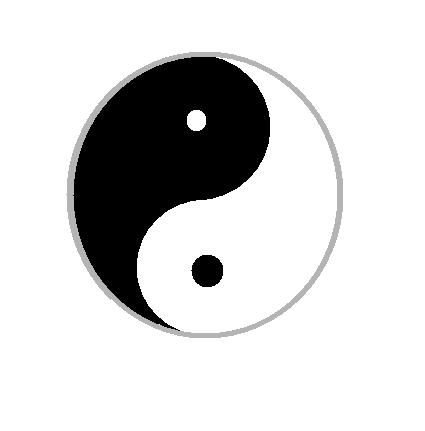Laozi's Dao De Jing 61-65 (老子道德經 61-65)
Author: Laozi (老子); translated by James Legge

The great state only wishes to unite men together and nourish them; a small state only wishes to be received by, and to serve, the other. Each gets what it desires, but the great state must learn to abase itself.
第六十一章
大國者下流,天下之交也,天下之牝。牝常以靜勝牡,以靜為下。故大國 以下小國,則取小國﹔小國以下大國,則取大國。故或下以取,或下而取 。大國不過欲兼畜人,小國不過欲入事人。夫兩者各得所欲,大者宜為下 。
Chapter 61
1. What makes a great state is its being (like) a low-lying, down-flowing (stream);—it becomes the centre to which tend (all the small states) under heaven.
2. (To illustrate from) the case of all females:—the female always overcomes the male by her stillness. Stillness may be considered (a sort of) abasement.
3. Thus it is that a great state, by condescending to small states, gains them for itself; and that small states, by abasing themselves to a great state, win it over to them. In the one case the abasement leads to gaining adherents, in the other case to procuring favour.
4. The great state only wishes to unite men together and nourish them; a small state only wishes to be received by, and to serve, the other. Each gets what it desires, but the great state must learn to abase itself.
第六十二章
道者萬物之奧。善人之寶,不善人之所保。美言可以市尊,美行可以加人 。人之不善,何棄之有?故立天子,置三公,雖有拱璧以先駟馬,不如坐 進此道。古之所以貴此道者何?不曰求以得,有罪以免耶?故為天下貴。
Chapter 62
1. Tao has of all things the most honoured place.
No treasures give good men so rich a grace;
Bad men it guards, and doth their ill efface.
2. (Its) admirable words can purchase honour; (its) admirable deeds can raise their performer above others. Even men who are not good are not abandoned by it.
3. Therefore when the sovereign occupies his place as the Son of Heaven, and he has appointed his three ducal ministers, though (a prince) were to send in a round symbol-of-rank large enough to fill both the hands, and that as the precursor of the team of horses (in the court-yard), such an offering would not be equal to (a lesson of) this Tao, which one might present on his knees.
4. Why was it that the ancients prized this Tao so much? Was it not because it could be got by seeking for it, and the guilty could escape (from the stain of their guilt) by it? This is the reason why all under heaven consider it the most valuable thing.
第六十三章
為無為,事無事,味無味。大小多少,報怨以德。圖難于其易,為大于其 細。天下難事,必作于易,天下大事,必作于細。是以聖人終不為大,故 能成其大。夫輕諾必寡信,多易必多難。是以聖人猶難之,故終無難矣。
Chapter 63
1. (It is the way of the Tao) to act without (thinking of) acting; to conduct affairs without (feeling the) trouble of them; to taste without discerning any flavour; to consider what is small as great, and a few as many; and to recompense injury with kindness.
2. (The master of it) anticipates things that are difficult while they are easy, and does things that would become great while they are small. All difficult things in the world are sure to arise from a previous state in which they were easy, and all great things from one in which they were small. Therefore the sage, while he never does what is great, is able on that account to accomplish the greatest things.
3. He who lightly promises is sure to keep but little faith; he who is continually thinking things easy is sure to find them difficult. Therefore the sage sees difficulty even in what seems easy, and so never has any difficulties.
第六十四章
其安易持,其未兆易謀,其脆易泮,其微易散,為之于未有,治之于未亂 。合抱之木,生于毫末﹔九層之臺,起于累土﹔千里之行,始于足下。為 者拜之,執者失之,是以聖人無為,故無敗,無執,故無師。民之從事, 常于几成而敗之﹔慎終如始,則無敗事。是以聖人欲不欲,不貴難得之貨 ﹔學不學,復眾人之所過。以輔萬物之自然,而不敢為。
Chapter 64
1. That which is at rest is easily kept hold of; before a thing has given indications of its presence, it is easy to take measures against it; that which is brittle is easily broken; that which is very small is easily dispersed. Action should be taken before a thing has made its appearance; order should be secured before disorder has begun.
2. The tree which fills the arms grew from the tiniest sprout; the tower of nine storeys rose from a (small) heap of earth; the journey of a thousand li commenced with a single step.
3. He who acts (with an ulterior purpose) does harm; he who takes hold of a thing (in the same way) loses his hold. The sage does not act (so), and therefore does no harm; he does not lay hold (so), and therefore does not lose his bold. (But) people in their conduct of affairs are constantly ruining them when they are on the eve of success. If they were careful at the end, as (they should be) at the beginning, they would not so ruin them.
4. Therefore the sage desires what (other men) do not desire, and does not prize things difficult to get; he learns what (other men) do not learn, and turns back to what the multitude of men have passed by. Thus he helps the natural development of all things, and does not dare to act (with an ulterior purpose of his own).
第六十五章
古之善為道者,非以明民,將以愚之。民之難治,以其智多。故以智治國 ,國之賊﹔不以智治國,國之福。知此兩者,亦稽式。常知稽式,是謂「 玄德」,「玄德」深遠﹔與物反矣,然后乃至大順。
Chapter 65
1. The ancients who showed their skill in practising the Tao did so, not to enlighten the people, but rather to make them simple and ignorant.
2. The difficulty in governing the people arises from their having much knowledge. He who (tries to) govern a state by his wisdom is a scourge to it; while he who does not (try to) do so is a blessing.
3. He who knows these two things finds in them also his model and rule. Ability to know this model and rule constitutes what we call the mysterious excellence (of a governor). Deep and far-reaching is such mysterious excellence, showing indeed its possessor as opposite to others, but leading them to a great conformity to him.
- Log in to post comments




Recent comments